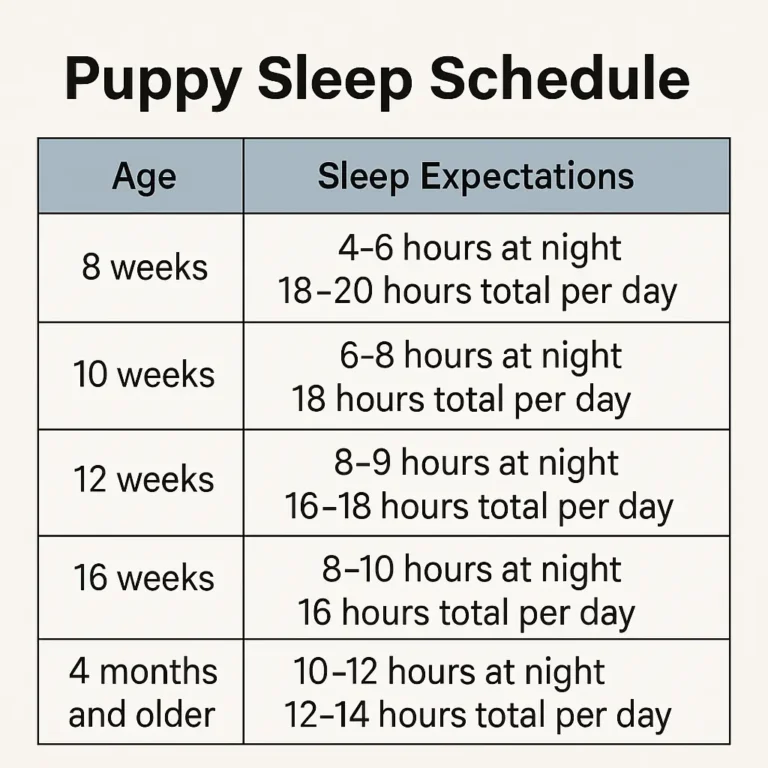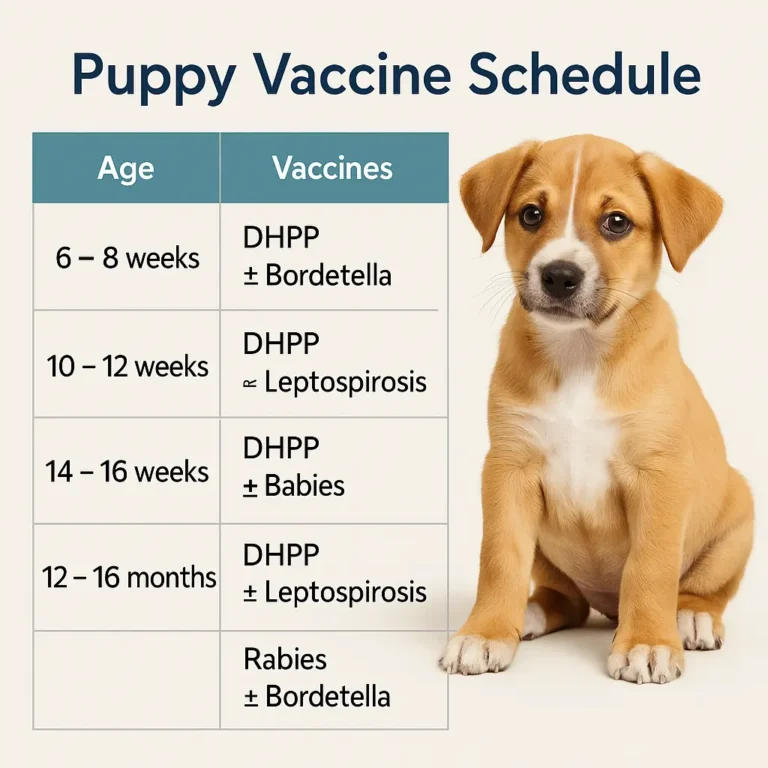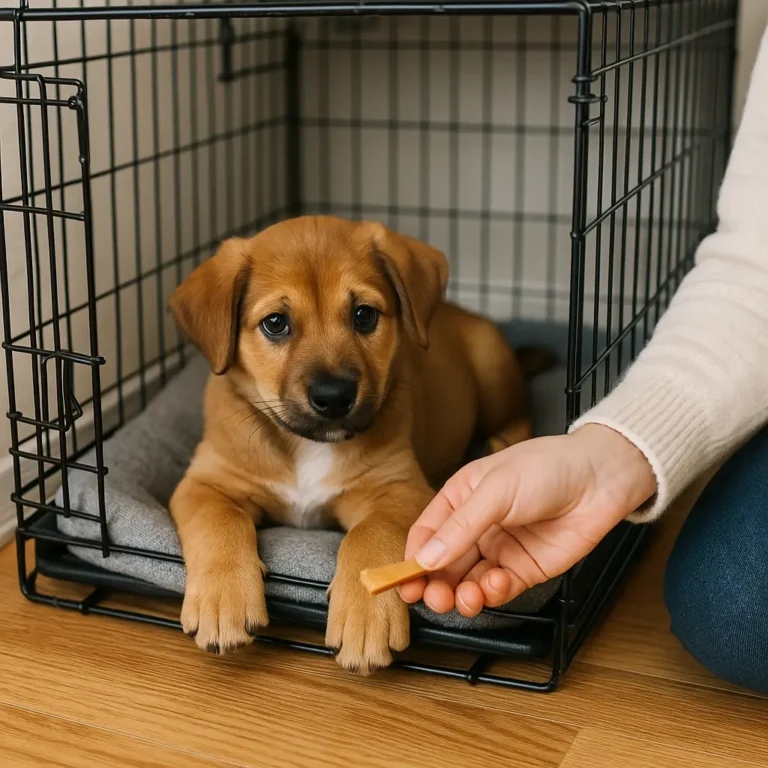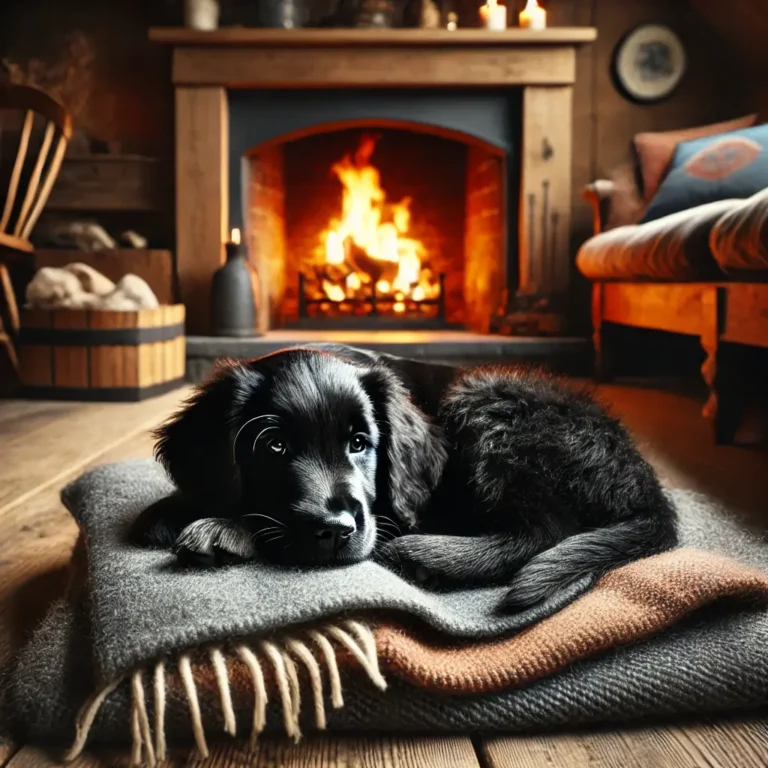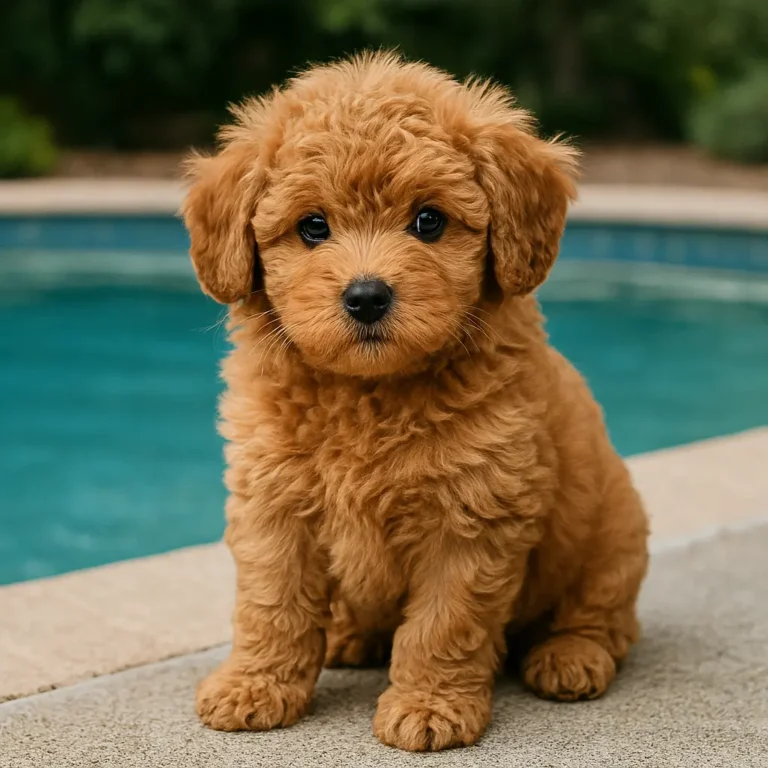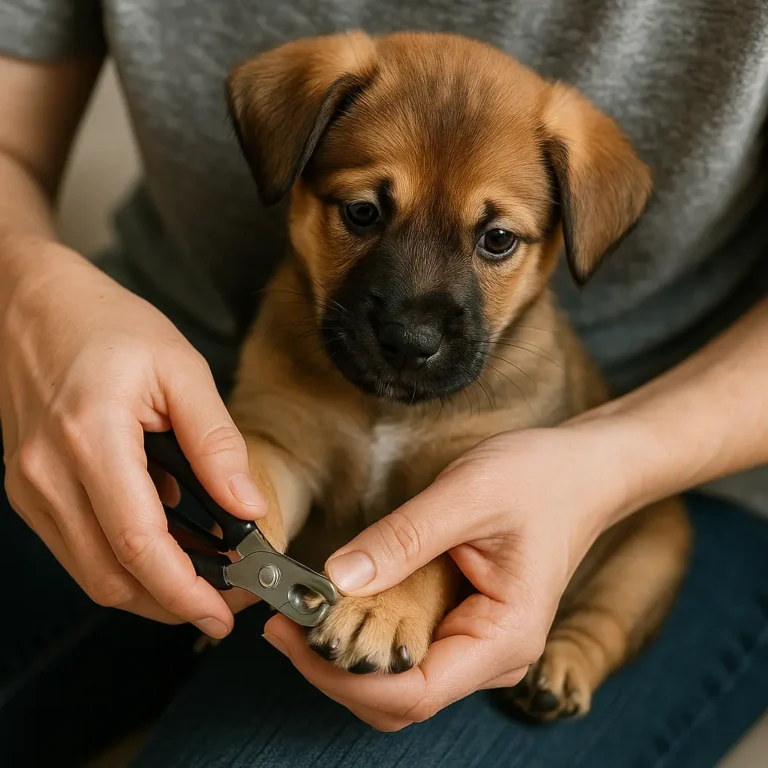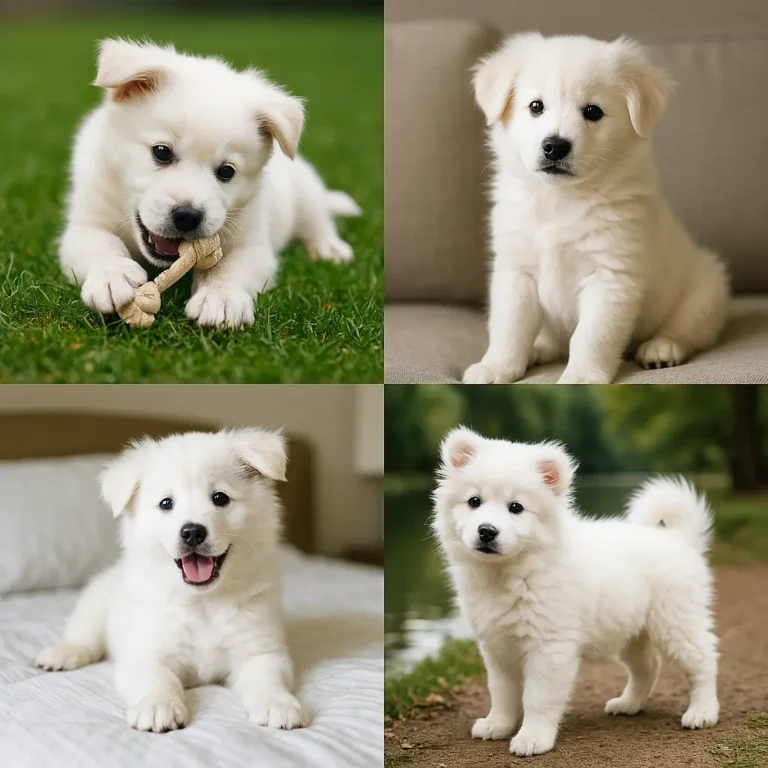Grooming your Carolina Dog is straightforward thanks to their short, dense coat. Regular brushing once or twice weekly with a soft-bristle brush keeps their coat healthy and reduces shedding. Occasional bathing with gentle shampoos prevents skin irritation without stripping natural oils. Regular ear cleaning is important to avoid infections, particularly given their erect ears prone to collecting debris. Maintain their nails through monthly trims, ensuring comfort and avoiding paw issues. Teeth should be brushed multiple times weekly to prevent dental disease. For breed-specific grooming advice and maintaining overall health, explore our comprehensive resource on Dog Characteristics.
🐾 Explore the Fascinating Carolina Dog Breed: America's Ancient Wild Dog
The Carolina Dog breed, also known as the American Dingo, is a fascinating, primitive breed native to North America. Exhibiting striking similarities to wild dogs, Carolina dogs have thrived naturally for thousands of years, showcasing resilience and intelligence. Their striking appearance includes pointed ears, almond-shaped eyes, and a lean muscular build adapted for agility and endurance. Originally discovered in the wild swamps and forests of South Carolina, this breed has gradually adapted to domestic life, making loyal and affectionate pets. Highly adaptable yet retaining strong survival instincts, the Carolina dog is an intriguing companion, perfect for active families who appreciate their unique heritage and natural behaviors. Known for their independent yet gentle temperament, these dogs form strong attachments to their families, thriving best when provided with consistent leadership, training, and ample outdoor activities. As interest in primitive Dog Breeds grows, the Carolina dog continues captivating dog lovers worldwide.

🐶 What to Expect with Carolina Dog Puppies
Bringing home Carolina dog puppies introduces boundless energy and playful curiosity into your life. Naturally intelligent, they quickly adapt to new environments, making early training and socialization crucial for developing balanced behavior. Highly inquisitive, these pups love exploring outdoors, reflecting their wild heritage. Positive reinforcement training methods effectively harness their eagerness to learn, building strong obedience foundations. Due to their inherent cautiousness toward strangers, exposing puppies to various people, animals, and situations is vital for fostering confidence and sociability. Their affectionate nature emerges prominently during puppyhood, as they form strong bonds with family members, making them exceptional lifelong companions.
Breed Traits
The Carolina dog demonstrates intelligence, adaptability, independence, agility, alertness, strong survival instincts, moderate energy levels, cautious behavior with strangers, and deep loyalty toward familiar individuals and families.
A healthy Carolina dog breed typically enjoys a lifespan between 12 to 15 years, benefiting significantly from regular veterinary care, a nutritious diet, exercise, and proper overall maintenance practices.
Adult Carolina dogs generally reach a height of 17 to 24 inches at the shoulder, reflecting their medium stature ideally suited for agility, speed, and outdoor adventures or activities.
A typical adult Carolina dog weighs between 30 to 55 pounds, exhibiting a lean, muscular physique perfect for their naturally active lifestyle, agility, and efficient movement.
The Carolina dog thrives ideally in homes providing ample outdoor spaces, regular physical activity, structured routines, and active family members who appreciate their natural instincts and behaviors.
Breed Characteristics
Distinctly primitive, Carolina dogs feature pointed ears, a curved tail, almond-shaped expressive eyes, short dense coat, and lean muscular build, perfectly adapted for outdoor survival and agility.
Absolutely! The Carolina dog forms deep, loyal bonds with family members. Their gentle temperament, affectionate nature, and playful energy make them excellent companions in responsible, active family households.
The Carolina dog breed has a lean, athletic body, muscular build, short dense coat, pointed ears, and expressive almond-shaped eyes, ideally suited for agility, speed, endurance, and survival instincts.
Though initially cautious, Carolina dogs can develop good social skills through proper training and early socialization, becoming affectionate, playful companions with family members and familiar individuals over time.
The Carolina dog exhibits a unique personality blending independence, intelligence, cautiousness, alertness, loyalty, playfulness, and affection, making them fascinating companions who reward patience and understanding from their owners.
🦮 Effective Training Techniques for Your Carolina Dog
Training your Carolina dog requires patience, consistency, and positive reinforcement. Naturally intelligent but independent-minded, they respond best to engaging, structured training sessions. Utilizing reward-based methods such as treats, praise, and positive interactions reinforces desirable behaviors effectively. Early socialization is critical, especially to reduce their inherent cautiousness around strangers and unfamiliar situations. Regular mental stimulation through obedience exercises, agility courses, and outdoor activities harnesses their active, curious nature constructively. Providing consistent boundaries and routines fosters respect and understanding between owner and dog, developing mutual trust. Properly trained Carolina dogs evolve into loyal, responsive, well-mannered companions, thriving in active, structured family environments.
Carolina Dog History & Facts
The Carolina dog breed has existed in the southeastern United States for thousands of years, thriving independently as wild dogs. First scientifically documented in the 1970s by Dr. I. Lehr Brisbin Jr., these dogs exhibited strong genetic connections to ancient wild canines, suggesting ancestral links with Asian pariah dogs. Primarily living in isolated areas of the Carolinas, the breed attracted attention for its unique ability to survive independently in harsh, swampy environments. Over time, dedicated breeding programs domesticated these dogs, maintaining their natural characteristics while adapting them to domestic life. Today, Carolina dogs fascinate researchers and dog enthusiasts, embodying living remnants of ancient canine heritage.
Carolina dogs have lived naturally in North America for thousands of years, representing one of the few ancient dog breeds native to the United States today.
Possessing remarkable hunting instincts, Carolina dogs exhibit digging behaviors and strong prey drives, skills inherited directly from their wild ancestry and adapted survival traits.
In the wild, Carolina dogs often form structured packs, demonstrating sophisticated social structures, clear hierarchies, cooperative hunting, and shared responsibilities, especially among female pack members.
Unlike many domestic breeds, Carolina dogs possess fastidious self-grooming habits similar to wild dogs, significantly reducing grooming needs and maintaining their naturally clean, manageable short coats.
Known for distinctive vocalizations, Carolina dogs communicate effectively with diverse sounds including yodeling, howling, whining, and barking, reflecting their primitive origins and complex social dynamics within packs.
🐩 Popular Shepherd Dog Mix Breeds You'll Love
Shepherd dog mixes combine desirable traits from popular parent breeds, creating versatile, loyal companions. Notable mixes include the Sheprador (German Shepherd + Labrador Retriever), known for friendliness, intelligence, and adaptability. The Gerberian Shepsky (German Shepherd + Siberian Husky) blends playful energy with exceptional intelligence and stunning appearance. The Shollie (German Shepherd + Border Collie) excels in obedience, agility, and work tasks due to their outstanding trainability and high energy. Each Shepherd Dog Popular Mix Breed provides unique characteristics, ideal for active families seeking loyal, intelligent, and highly trainable canine companions perfect for various lifestyles and needs.
🥩 Best Foods for a Healthy Carolina Dog Diet
Choosing the right diet is essential to keep your Carolina Dog breed fit and healthy. High-quality dry kibble containing real meat like chicken, beef, or salmon is ideal for their active lifestyle. Incorporate nutritious carbohydrates such as sweet potatoes and peas to provide sustained energy. Healthy fats, especially omega fatty acids, enhance coat and skin health. Avoid artificial additives and fillers that could cause allergies. Puppies should be fed specialized puppy-formulated foods to support growth. Always regulate portion sizes and provide fresh water daily. For more breed-specific dietary advice, check our comprehensive guide on Types of Dogs.
🐕 What’s Typical Carolina Dog Breed Behavior Like?
The Carolina Dog breed exhibits pack-oriented, independent behaviors reminiscent of their wild ancestry. Naturally reserved yet loyal, they form strong bonds with their family. Regular socialization from puppyhood ensures balanced interactions. While affectionate with their humans, Carolina Dogs require consistent boundaries, clear routines, and gentle leadership to thrive at home.
Alertness
Highly alert and observant, the Carolina Dog quickly notices changes in their environment. Their sharp senses make them exceptional at signaling the presence of strangers or unusual activities nearby.
Protectiveness
Moderately protective, the Carolina Dog breed is cautious rather than aggressive. They’ll guard their family and territory instinctively but prefer observing strangers before responding, making them reliable family companions.
Prey drive
Due to their wild lineage, Carolina Dogs have a noticeable prey drive. Early training and socialization help significantly control these instincts, ensuring peaceful interactions with smaller household pets and animals.
Aggressiveness
The Carolina Dog breed generally exhibits low aggression when properly socialized. With early training, positive reinforcement, and clear leadership, they become calm, stable companions comfortable around adults and children alike.
Barking level
Typically quiet and reserved, the Carolina Dog has a low barking tendency. They bark primarily to alert their owners to potential threats, making them ideal for quieter home environments.
Trainability
Moderately trainable, Carolina Dog puppies respond best to positive, reward-based methods. Patience and consistency help overcome their independent streak, achieving reliable obedience and balanced behavior in adulthood.
Mental stimulation needs
Regular mental challenges are crucial for the intelligent Carolina Dog breed. Engage them with interactive puzzle toys, varied training routines, and daily play to prevent boredom and destructive behaviors.
Intelligence
The Carolina Dog is notably intelligent and resourceful. Their ability to quickly learn new commands and adapt to changing circumstances demonstrates impressive cognitive skills, easily harnessed through structured training sessions.
🐶 Most Popular Carolina Dog Mixes You'll Adore
The versatility of the Carolina Dog breed makes popular mixes delightful choices for families. The affectionate and active Carolina Dog Lab Mix blends Labrador friendliness with Carolina independence, ideal for active households. Another favorite is the Carolina Dog German Shepherd Mix, known for intelligence and loyal guardianship, making excellent family protectors. Additionally, the energetic Carolina Dog Australian Shepherd Mix combines agility and cleverness, perfect for outdoorsy lifestyles. Each mix inherits unique traits, adapting to various living conditions and owner preferences. Discover more about these appealing mixes in our dedicated section on Dog Breeds.
✂️ Essential Grooming Tips for Your Carolina Dog
Unique Physical Attributes of the Carolina Dog Breed
The Carolina Dog features a muscular yet lean build, reminiscent of wild ancestors. Their almond-shaped eyes offer a curious expression, complemented by erect, pointed ears. A distinctive curled tail and sturdy limbs support their agile frame. The Carolina Dog's alert posture highlights their keen awareness and adaptable, robust nature.
Breed Size
The Carolina Dog breed is medium-sized, typically weighing between 30-55 pounds and standing around 17-24 inches tall. Their size perfectly balances agility, strength, and ease of household adaptability.
Colours
Common coat colours for Carolina Dogs include tan, ginger, fawn, black, and various shades of cream. These natural, earthy tones beautifully reflect their ancestral wild canine heritage.
Coat
The Carolina Dog has a short, dense, double coat that's easy to maintain. It provides excellent weather protection, requiring minimal grooming, occasional brushing, and basic seasonal coat management.
Drooling
Carolina Dogs are minimal droolers, rarely creating noticeable messes. Owners typically won't face drooling issues, making them ideal companions for those seeking clean and tidy pets at home.
Snoring
Snoring is uncommon in Carolina Dogs due to their lean build and respiratory structure. Any occasional snoring usually indicates deep relaxation rather than health issues or breathing difficulties.
Exercise Needs
The Carolina Dog thrives with daily moderate exercise, including walks, hikes, or playful outdoor activities. Regular physical activity keeps them mentally stimulated, physically fit, and prevents boredom-related behaviors.
Grooming Needs
Grooming your Carolina Dog is straightforward. Occasional brushing, regular bathing every few months, and routine nail trimming ensure their coat remains clean, healthy, and manageable throughout the year.
Aggressiveness
Carolina Dogs are typically not aggressive but rather reserved and cautious around strangers. Proper early socialization significantly reduces potential aggressiveness, fostering a balanced and friendly temperament in adulthood.
Promoting Carolina Dog Breed Health: Key Considerations
Carolina Dogs generally exhibit robust health, with a life expectancy averaging 12-15 years. They have fewer breed-specific health concerns but can experience common medium-sized dog issues such as hip dysplasia, elbow dysplasia, and certain eye conditions. Routine veterinary check-ups, balanced nutrition, and regular exercise are essential to maintaining their overall wellness. Preventive care including vaccinations, parasite control, and dental hygiene further supports their longevity. Keeping an eye on their weight through regular exercise and controlled feeding reduces risks associated with obesity. Responsible ownership, vigilant health monitoring, and attentive care ensure your Carolina Dog enjoys an active, fulfilling, and healthy life.
Carolina Dog Breed Size: Perfectly Medium and Manageable
As a medium-sized breed, Carolina Dogs offer the ideal balance between manageability and athletic ability. Typically standing 17-24 inches at the shoulder and weighing between 30-55 pounds, they’re neither overly demanding nor fragile, making them suitable for various living situations, from apartments to suburban homes. Their size makes them excellent companions for active individuals or families who enjoy outdoor activities. This medium stature provides easy handling during grooming sessions and manageable veterinary visits. Additionally, the Carolina Dog’s moderate size facilitates smoother interactions with children and other pets, enhancing their adaptability as family pets and loyal companions who thrive in diverse home environments.
FAQs About the Carolina Dog Breed
Are Carolina Dogs good family pets?
Yes, Carolina Dogs make great family pets, especially with early socialization. They bond closely with family members, becoming protective, affectionate companions suitable for active households.
How much exercise does a Carolina Dog need?
Carolina Dogs require daily moderate exercise, ideally about 45-60 minutes, including walks, hiking, and interactive play to maintain their mental and physical health optimally.
Do Carolina Dogs bark a lot?
Carolina Dogs have moderate barking habits, usually alerting their owners to potential concerns. Proper training effectively manages their barking, preventing it from becoming excessive or bothersome.
Are Carolina Dogs easy to train?
They are intelligent and trainable but retain independent thinking from their wild ancestors. Positive reinforcement training methods combined with patience ensure effective and enjoyable training sessions.
What's the lifespan of a Carolina Dog?
With proper care, regular exercise, and balanced nutrition, Carolina Dogs typically live between 12 to 15 years, showcasing good general health and longevity in the breed.
Can Carolina Dogs adapt to apartment living?
Yes, with sufficient daily exercise and mental stimulation, Carolina Dogs can adapt to apartment life, though they ideally thrive better in homes with ample outdoor spaces.
Do Carolina Dogs get along with other pets?
Carolina Dogs can coexist harmoniously with other pets, especially when introduced early and socialized properly. Early socialization significantly improves their adaptability around various animals and family members.
What is a Carolina Dog Lab Mix like?
A Carolina Dog Lab Mix typically combines loyalty, intelligence, and friendliness from both breeds, resulting in an active, affectionate pet ideal for families and active individuals alike.
Life with a Carolina Dog is an active, rewarding experience characterized by loyalty and adaptability. These intelligent dogs thrive on companionship, regular physical activities, and mental stimulation. They enjoy outdoor adventures, such as hiking, exploring trails, or engaging in interactive games, fitting seamlessly into active lifestyles. Indoors, Carolina Dogs are affectionate, forming strong bonds with family members, and enjoying relaxing moments alongside their owners. Their independent nature requires consistent training and socialization, ensuring harmonious living. Carolina Dogs adapt well to various environments, making excellent companions for individuals, families with children, or active seniors, providing loyalty, affection, and reliable companionship throughout their lives.
Choosing a Carolina Dog brings a loyal, intelligent, and active companion into your life. Their manageable size, minimal grooming needs, and strong health profile make them an ideal breed for various lifestyles. Carolina Dogs are perfect for active families, singles, or seniors looking for adaptable, affectionate pets. Their moderate exercise requirements and straightforward grooming routines further add to their appeal. Ensuring proper training, regular socialization, and adequate exercise creates an ideal environment for these dogs to thrive. Ultimately, welcoming Carolina Dog puppies or a Carolina Dog Lab Mix into your home guarantees years of companionship, adventure, and enduring loyalty from this unique, engaging breed.

